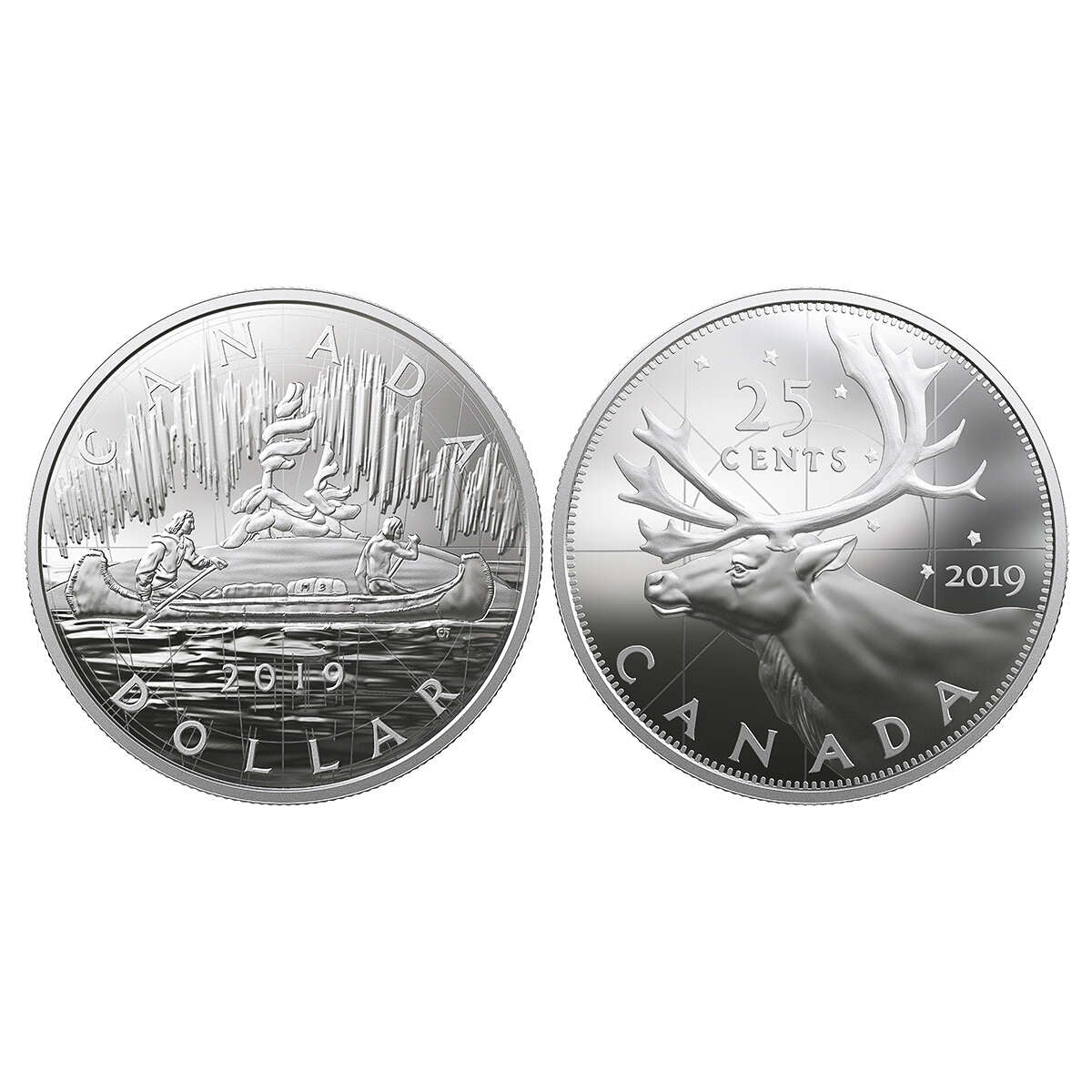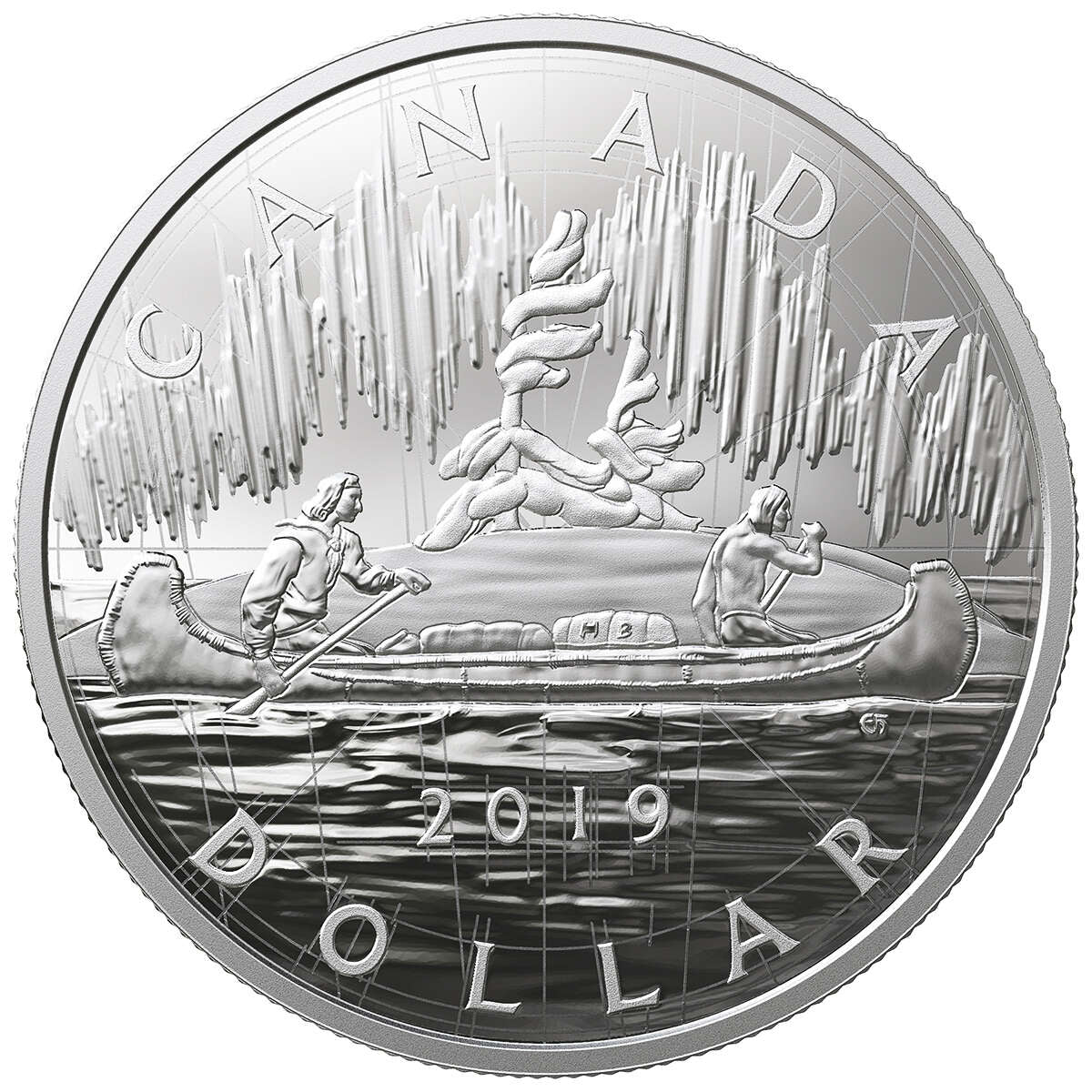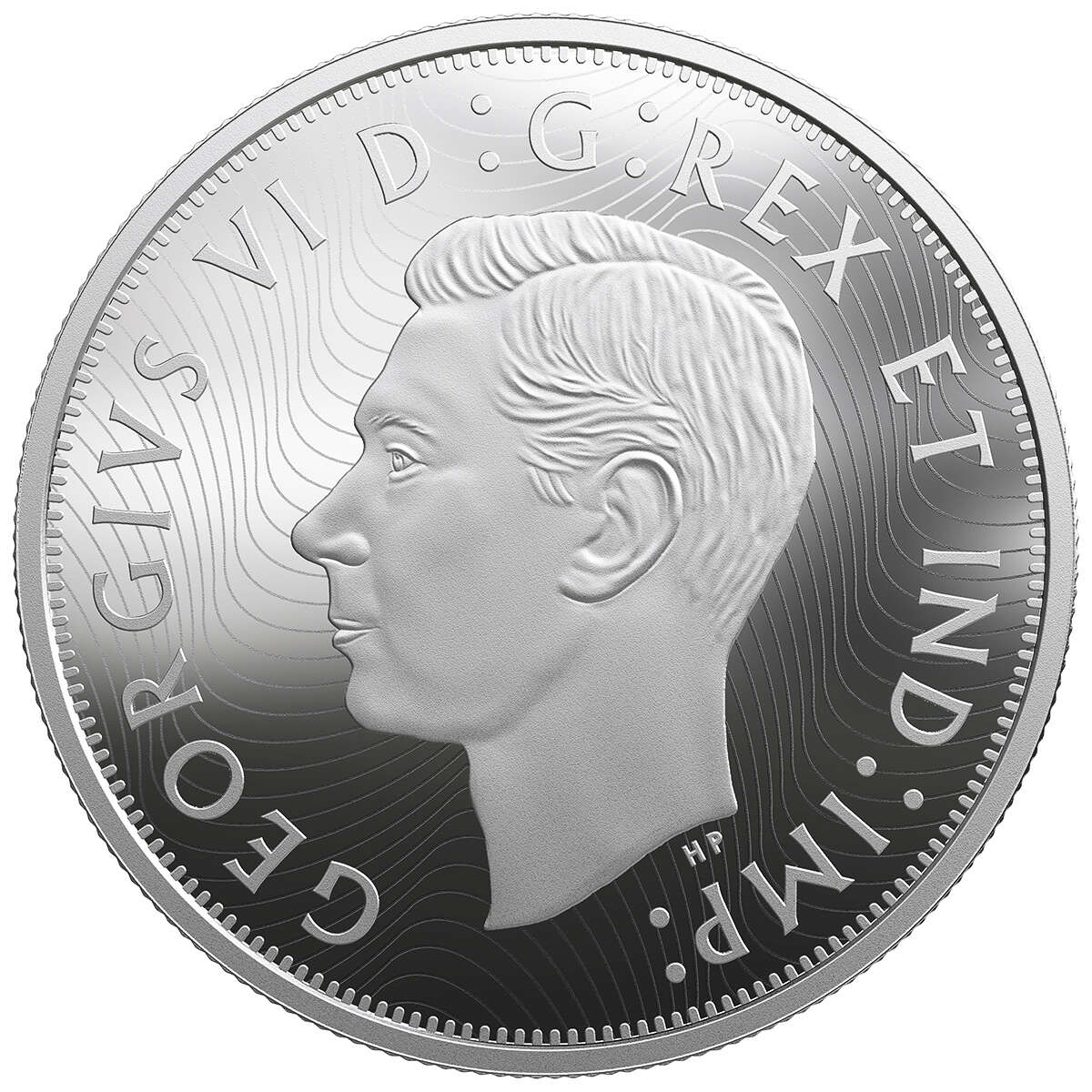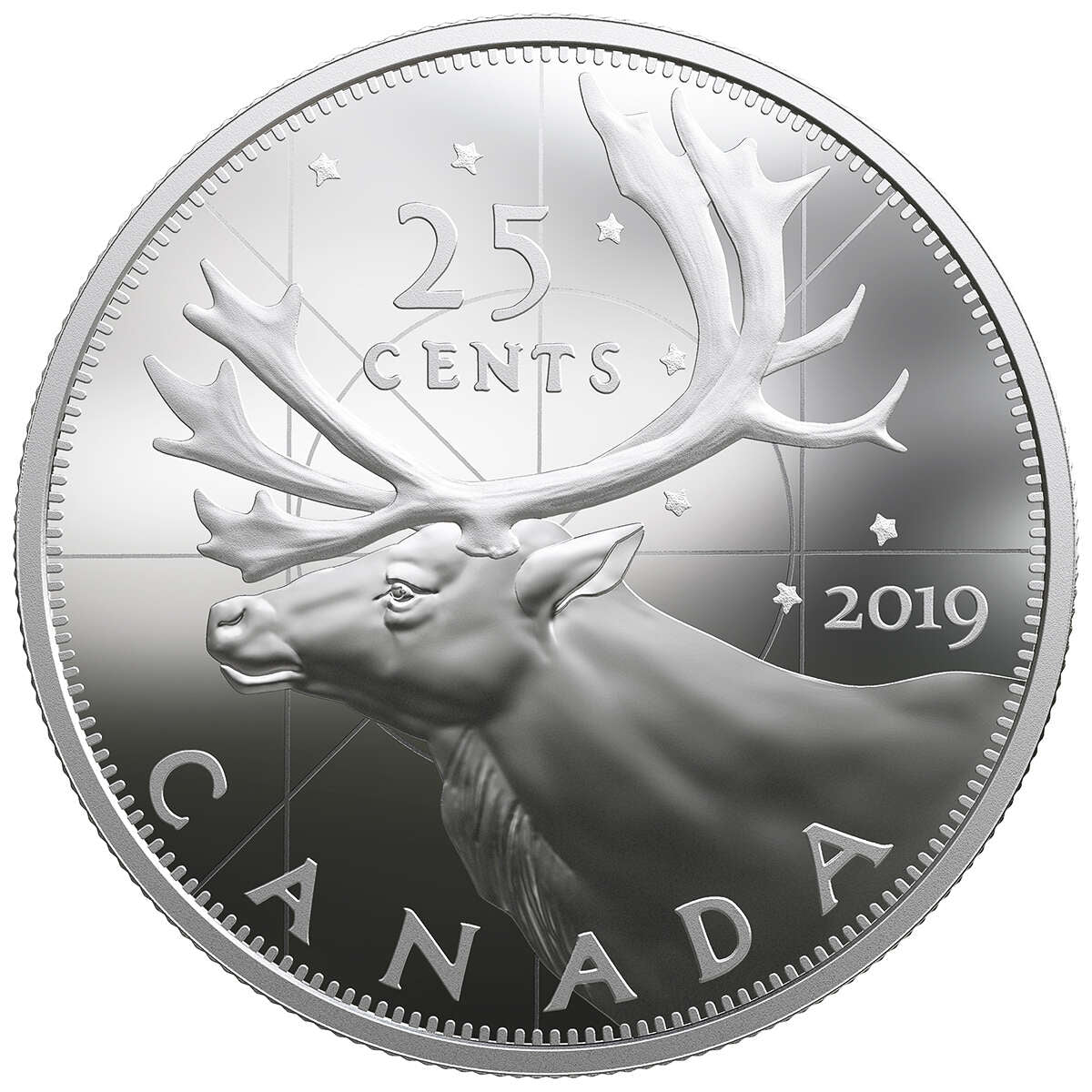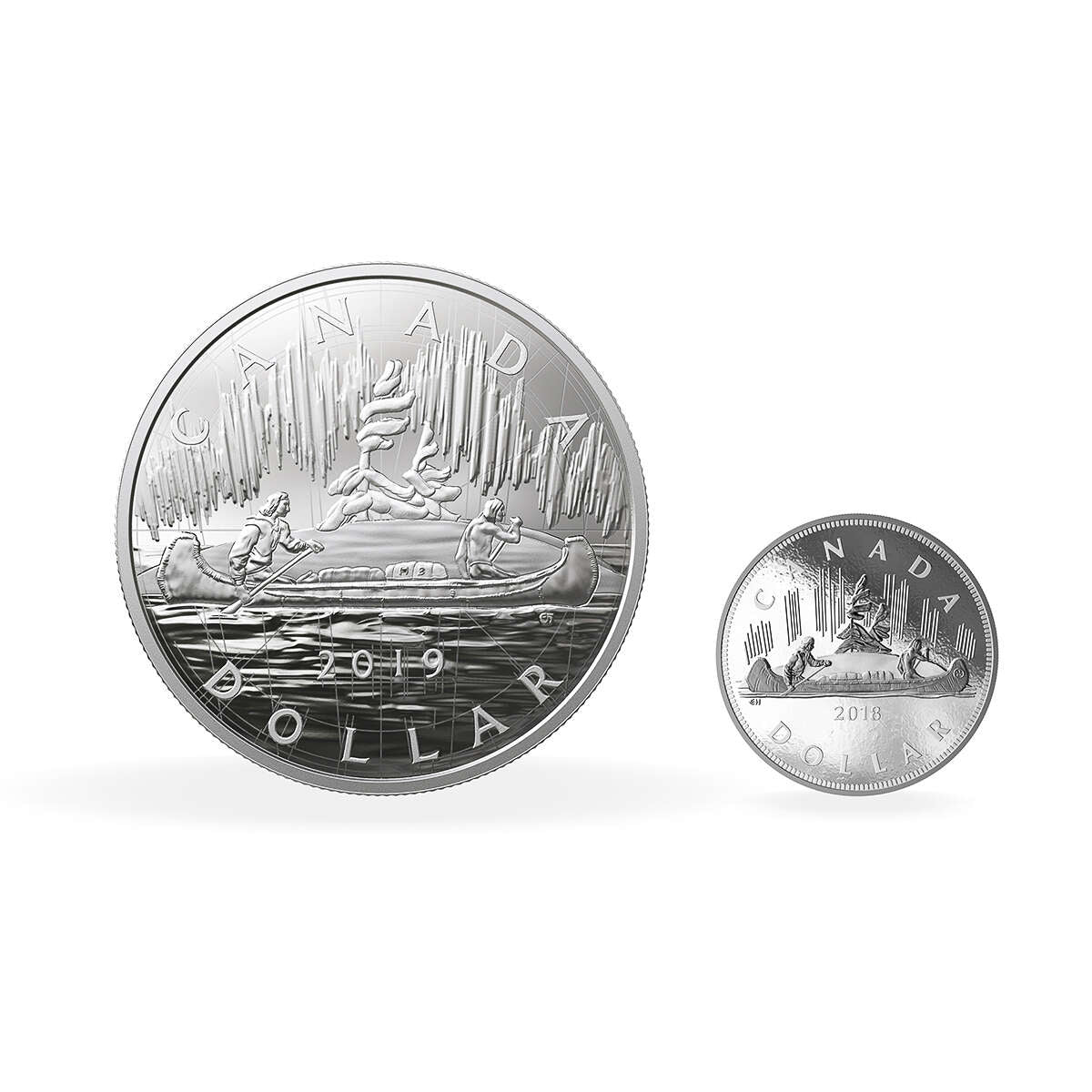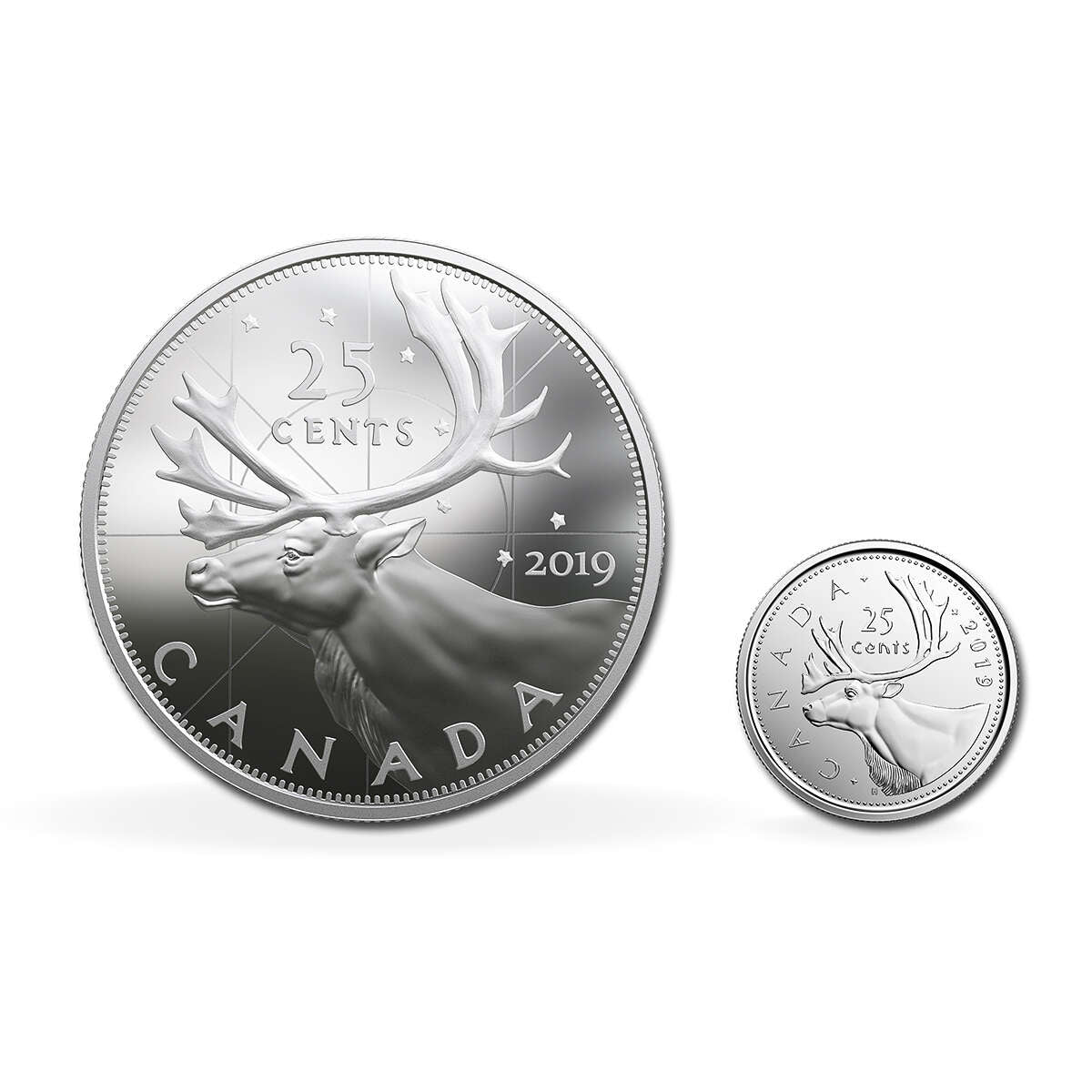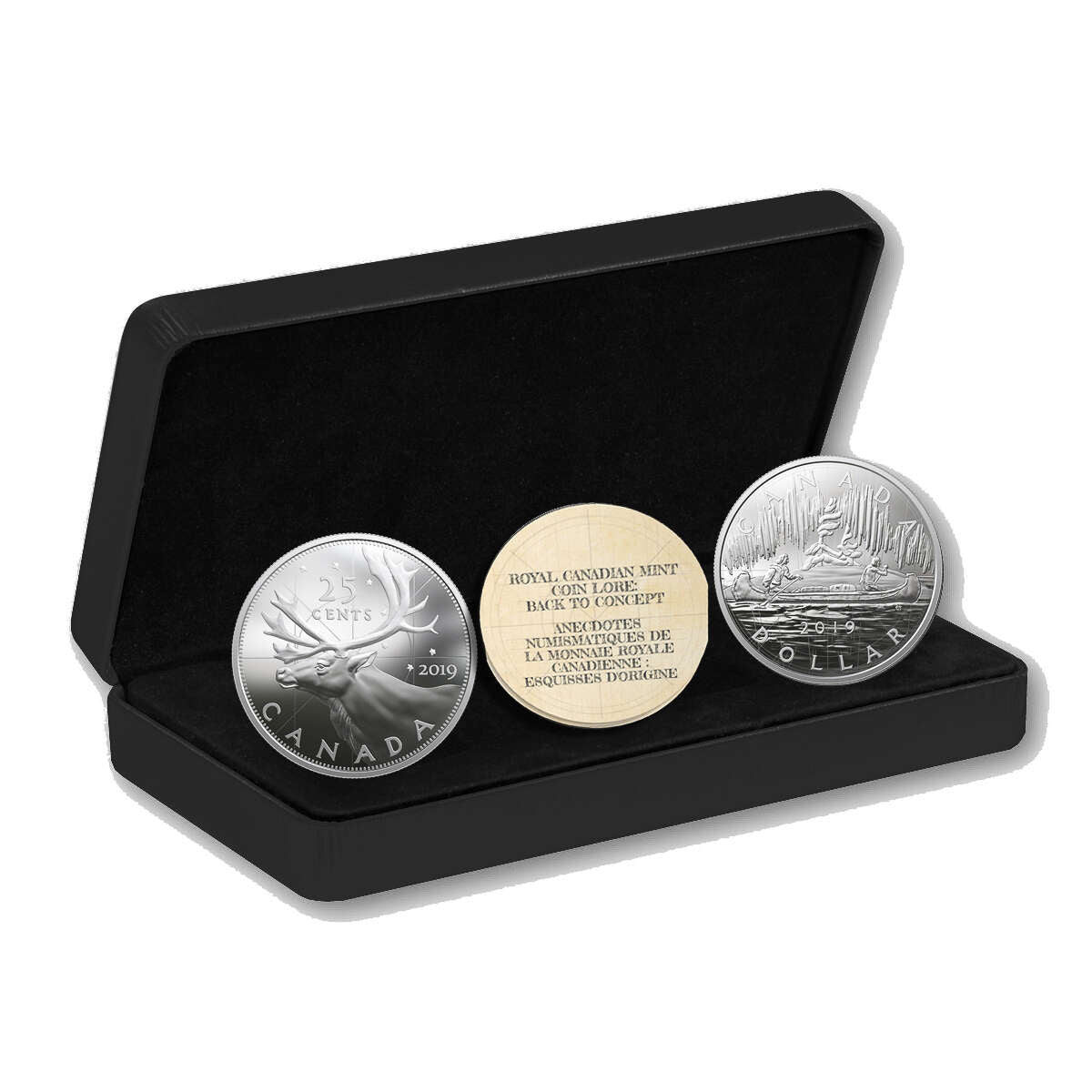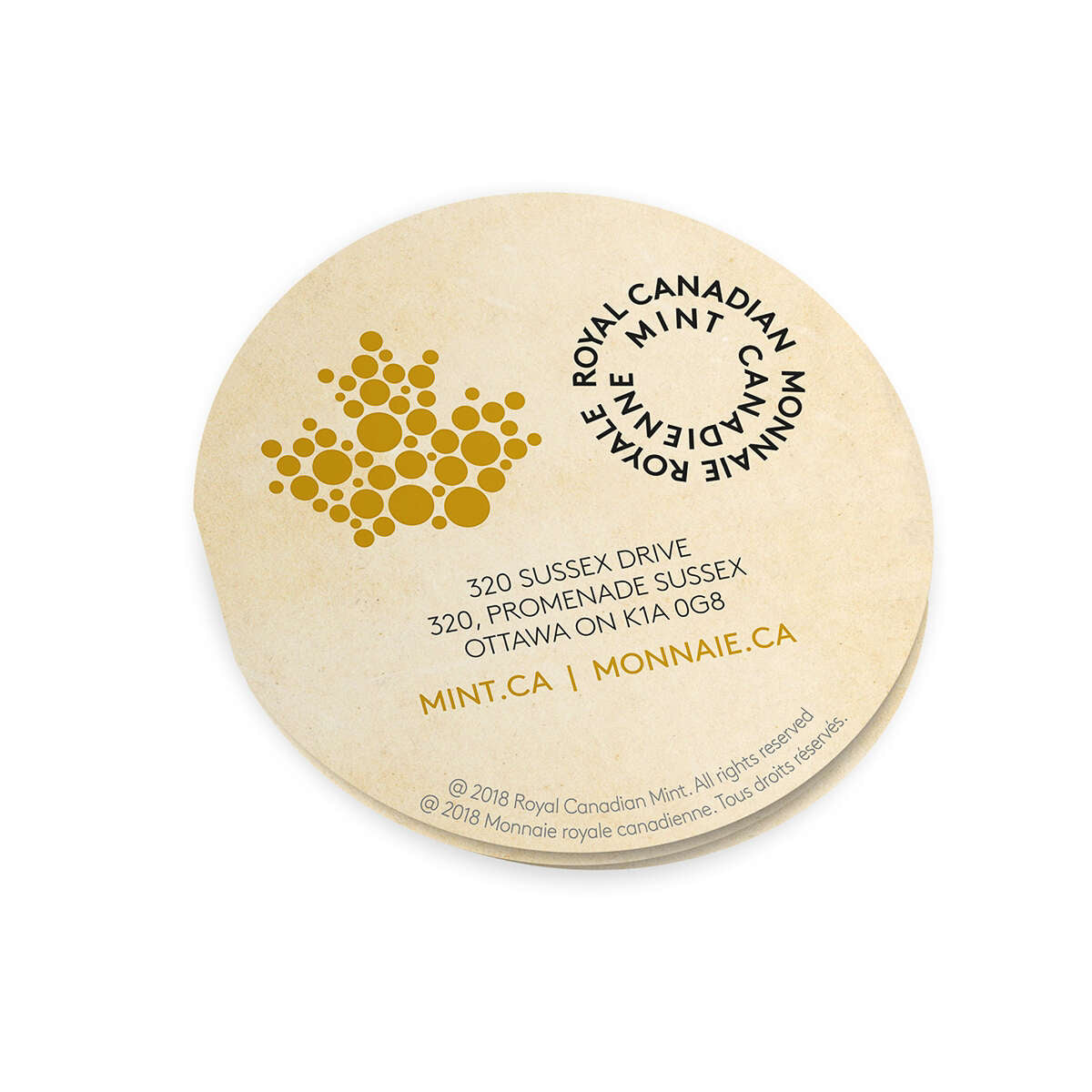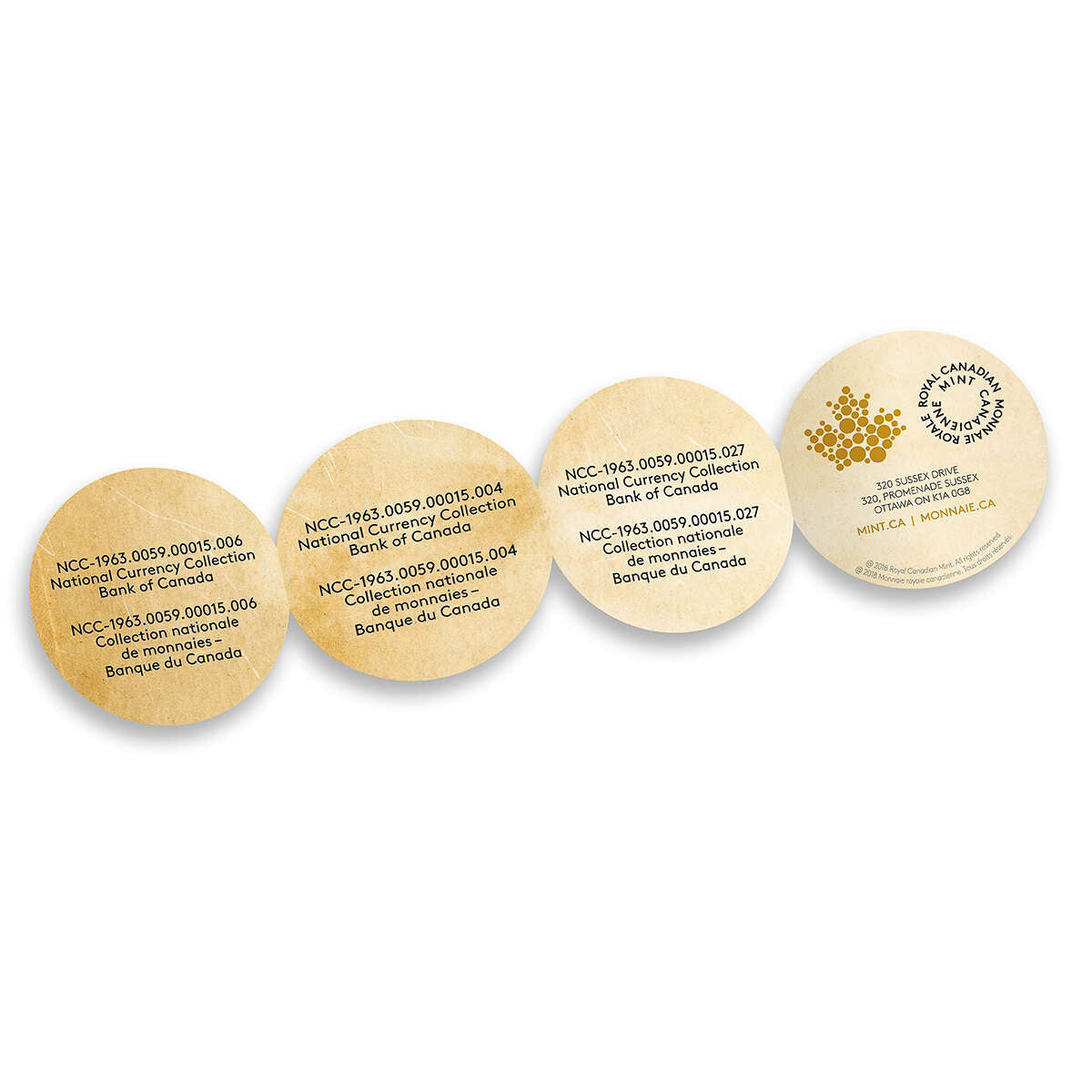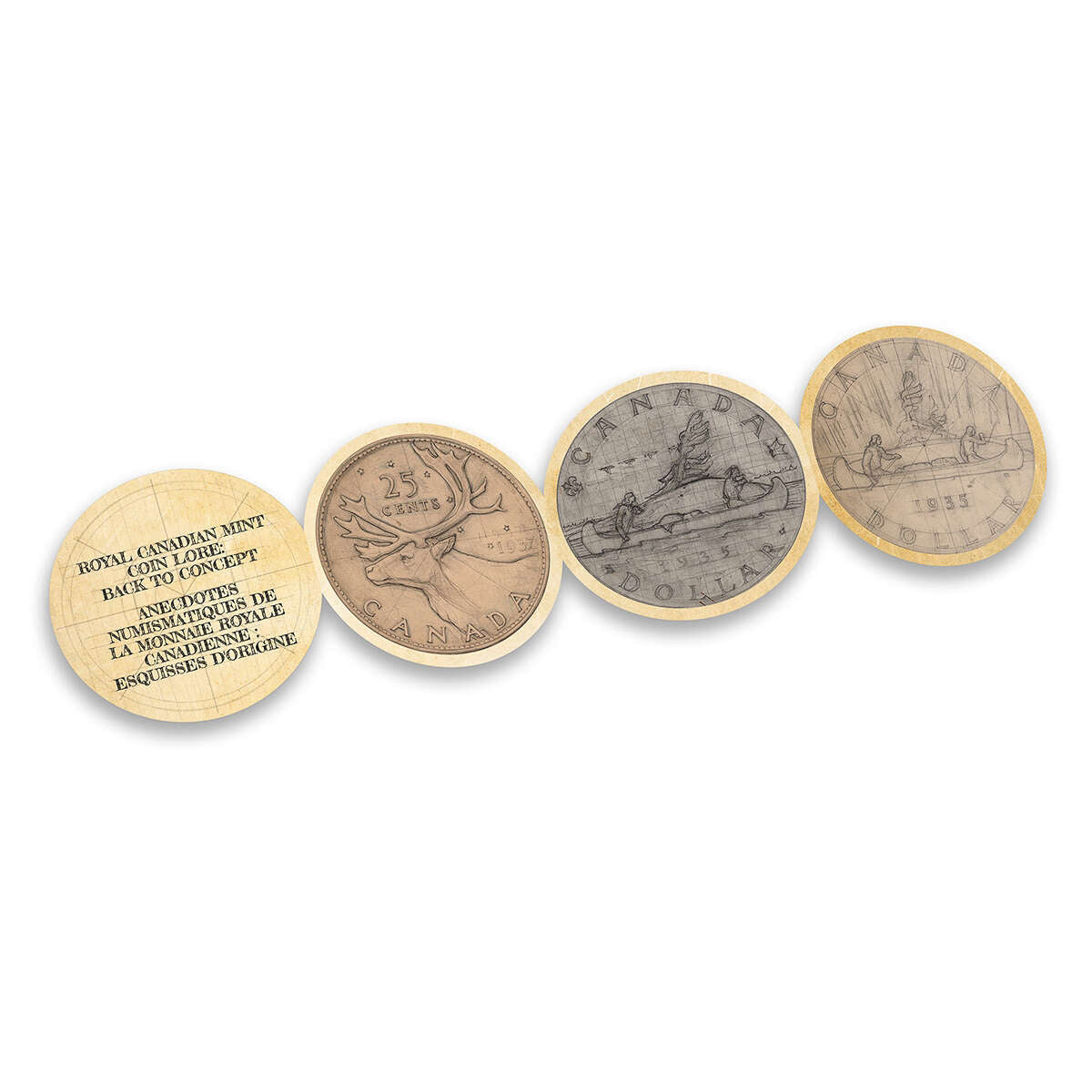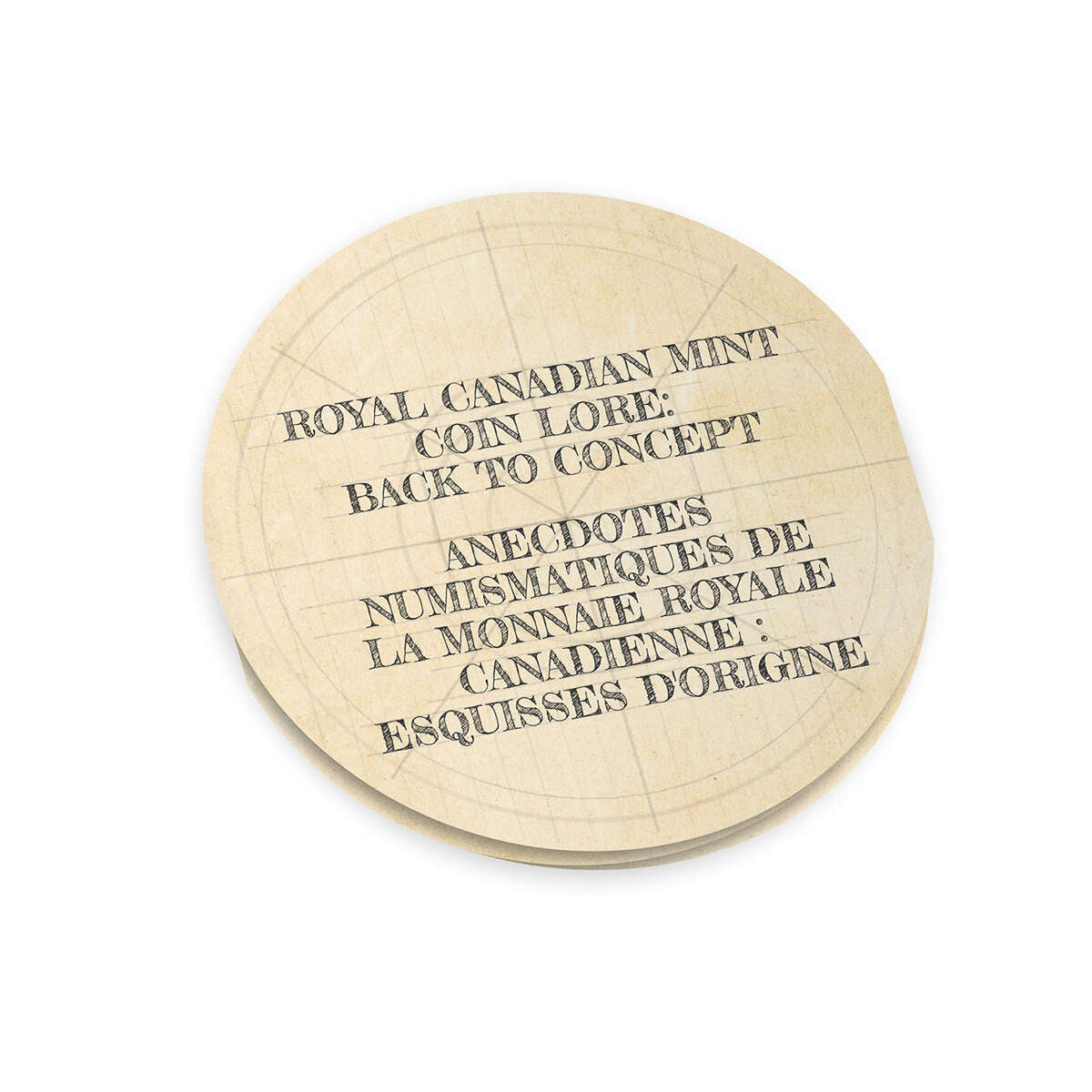Description
Discover the fascinating and artistic history of Canada’s most iconic coins with this set of two large format fine silver coins. The designs are variations of our familiar Voyageur dollar introduced in 1935 and Caribou Quarter introduced in 1937 as originally first sketched by renowned artist Emanuel Hahn. The original sketches remain preserved in the Bank of Canada’s National Currency Collection and are now for the first time coming to life as real coins as the artist first envisioned them. In addition to offering rare insight into the development of our silver dollar and quarter, these new 50 mm two ounce fine silver issues combine exceptional historic art and a low mintage of just 1,750 to create an extremely collectible limited continuation of each classic denomination. HST/GST exempt.
Voyageur Dollar Design:
Emanual Hahn’s original sketch for the Voyageur dollar includes much greater detail and artistic elements than the final adopted design used from 1935 to 1986. Hahn had a sense of design that would be suitable for fine collector coins today, but compromises needed to be made to ensure the coins could be efficiently minted in large quantities for circulation. While the water in the foreground and aurora borealis in the background of the final circulation issues are seen only as subtle elements, this new coin based on the original art brilliantly captures the exceptional perspective and fine details first envisioned by the artist.
Caribou Quarter Design:
Hahn’s original Caribou Quarter design envisioned sharper detail and greater relief to present a more realistic caribou. Canada appears across the bottom instead of around the left side, and the date is positioned horizontally instead of around the circumference. Seven stars also appear in the background, adding perspective and tying the design together with the Voyageur dollar as part of the same series. Ultimately, this initial design was simplified to take into account metal flow and the ability to mass produce coinage for circulation, resulting in the modified version first issued in 1937.
The obverse features the effigy of King George VI by T. H. Paget.

